They say if you choose a career you love, you’ll never work a day in your life. Technically, apprentice Finn Giddy works “bloody hard” – according to his boss Jason. But the fact he gets to work in his favourite places, doing what he loves, makes his chosen career more than just work. It’s a way of life.
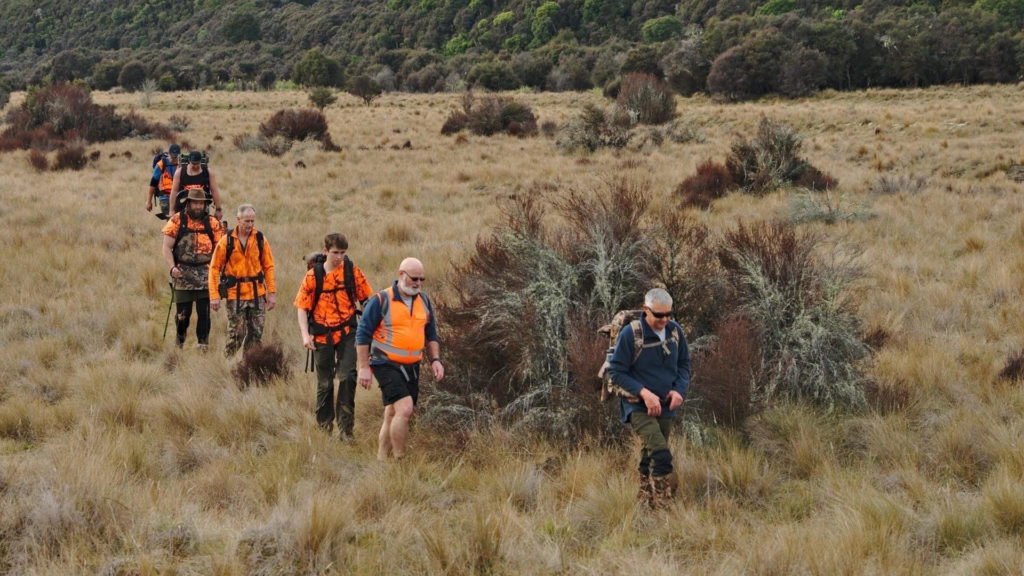
Cracking into a cracker of a role
Born and raised in Taupō, 21-year-old Finn wanted to get into predator trapping work for as long as he can remember. But despite it being a dream job, Finn wasn’t sure how to crack into the industry.
His luck suddenly changed when a friend put his name forward to Call of the Wild Director Jason Day. It was the spark that brought his Jobs for Nature-funded apprenticeship to life.
Now?
“I’m out trapping and hunting every day of the week, which I love. Our work is in the bush, usually in places that I’d choose to spend my time in anyway,” says Finn.
“When I started out in the role, I didn’t really know what to expect. But the job is every bit as good as I hoped it would be.”
Life on the job
A typical morning for Finn begins with a briefing from Jason on the day ahead. Then, he’s off.
Jumping into his ute, Finn heads to the ‘office’. Finn’s office? Native bushland, forests, the banks of pristine lake Taupō, to the beautiful but harsh terrain of the Kaimanawa Ranges.
Usually the work will involve trapping possums or rats. Though sometimes the brief for the day is a little more exotic – requiring hunting a wild pig or a wallaby.
These are Finn’s favourite type of jobs, due to the skill and hunting prowess needed.
After over a year into his apprenticeship, boss Jason is now confident leaving Finn to take on a variety of solo jobs.
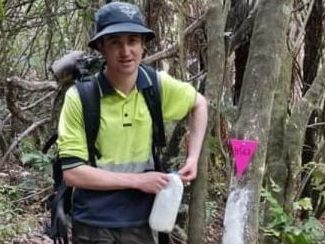
Taking on 400+ possums
The work is challenging – but rewarding. A truth best illustrated in a large-scale job the Call of the Wild team recently completed.
Director and mentor to Finn Jason describes the project: “We undertook a 1,000ha ground-based possum trapping job in the Lake Taupō Forest, right beside the lake.
“The client wasn’t happy with the success of past methods they’d been using, so they brought us in. They wanted to trial something new and see if they could get more effective control over the possum population.
“Finn worked alongside me and our subcontractor. To be successful, we had to have less than a 12 percent possum bite mark index (BMI).”
For those not familiar with trapping lingo, BMI represents the percentage of wax tags individual possums bite on a trap line.
“The boys caught over 400 possums in leg hold traps – and worked bloody hard. After our tireless work, an independent monitoring crew was brought in to assess how we went. They set up 12 monitoring lines over the course of a week.
“The final result? A BMI of 0 percent. Not one possum was detected. It was a really proud moment for our business and our small but mighty team.”
Giving back to the local community
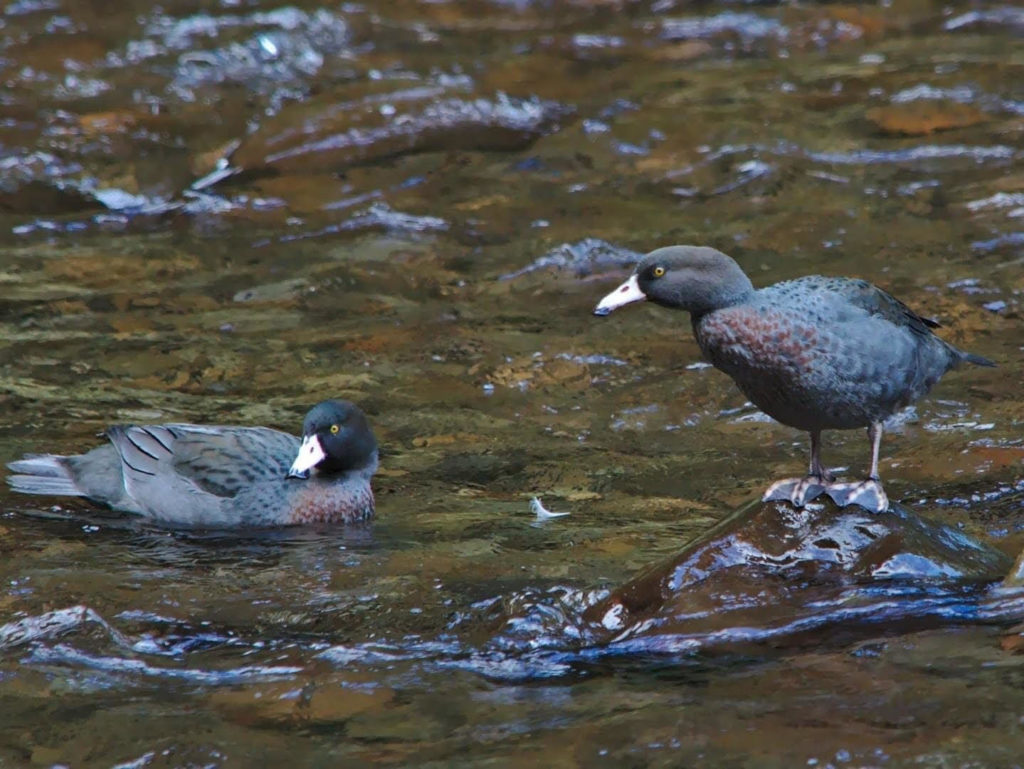
One of the joys of the job for Finn is working for a company that truly puts back into the community it serves.
The team uses their technical knowledge to conduct training for Taupō’s Rural Education Activities Programme and the Blue Light youth empowerment programme. Their efforts help upskill and educate all manner of people – from at-risk youths, to struggling job seekers.
Given Finn’s particular passion for deer hunting, he immerses himself into helping out the local Sika Foundation, volunteering days at a time to help the group with predator trap lines.
This is vitally important work, given the Kaimanawa Ranges predators (such as rodents and mustelids) pose a significant threat to the local whio (blue duck) population.
Part team, part family
Despite being a small team of four, Finn has yet to be awarded employee of the month.
“I keep getting pipped at the post by Dozer,” laughs Finn.
Dozer, of course, being the team’s four-legged team member – a bull terrier dog. It’s this kind of good-natured ribbing that shows the team’s strong bond.
Given Jason was initially sceptical about taking on an apprentice, things couldn’t have gone smoother for the duo.
“I was used to doing things by myself, and I’m rigorous with my approach and have very high standards. I knew it had to be the right person and the right fit. But Finn? He’s awesome.
“In fact, I’m now thinking about taking on a second apprentice. And having Finn onside to help me train them is going to be great,” says Jason.
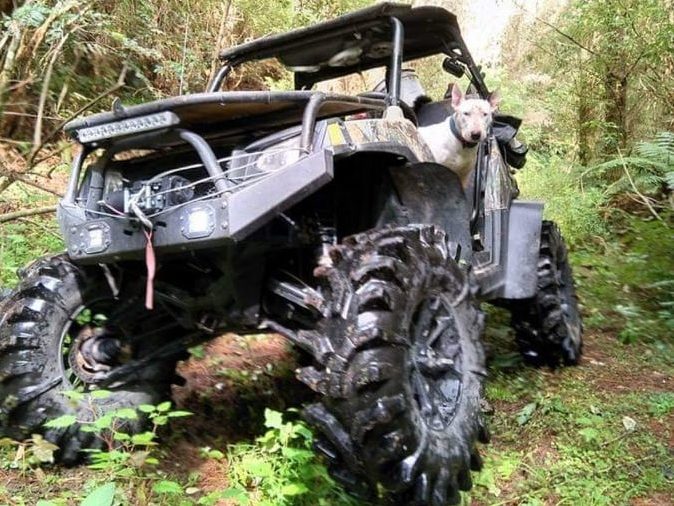
Looking ahead
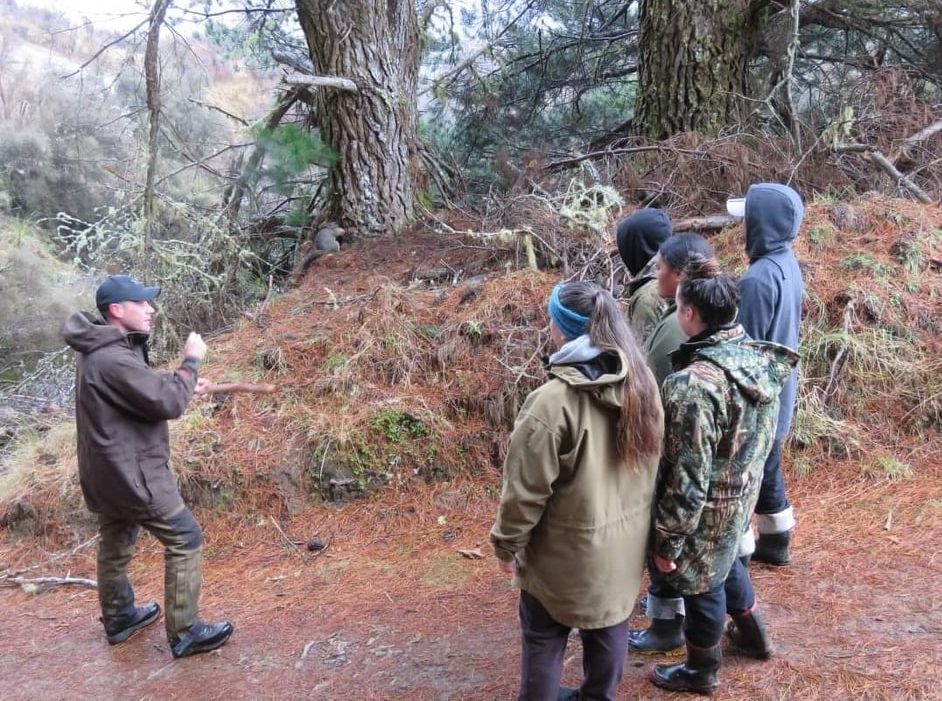
It’s an exciting time for Finn and the Call of the Wild team. With the Predator Free 2050 goal, there’s been huge growth in the industry.
“Through funding we’re seeing heaps of new technology crop up. The industry’s starting to use flasher, more technical traps – including automated traps. And my business is moving with the times as new innovations become available.
“Plus, there are more and more groups starting off and it’s benefitting the whole country. It’s a great time to be in the sector,” says Jason.
And if you’re thinking of moving into the sector? Finn says, “If you enjoy being out in the bush and protecting native species, this will be perfect for you.”
See yourself in the sector?
Check out Conservation Jobs to explore the possibilities, or visit the Jobs for Nature website to find out about projects happening in your area.
While all the Predator Free Apprentice Programme spaces are now filled, you might also like to try reaching out to a predator control business in your area. These businesses are always on the lookout for staff who are hard working and passionate about the outdoors.
What’s the Predator Free Apprentice Programme?
The Predator Free Apprentice Programme kicked off in late 2020, as a result of Jobs for Nature funding from the Department of Conservation. There are currently 64 apprentices placed with a range of host organisations around New Zealand.
The aim of the programme is to grow the number of predator control operators by pairing apprentices with experienced professionals. The long-term goal is to help inspire and foster future leaders in the industry.

